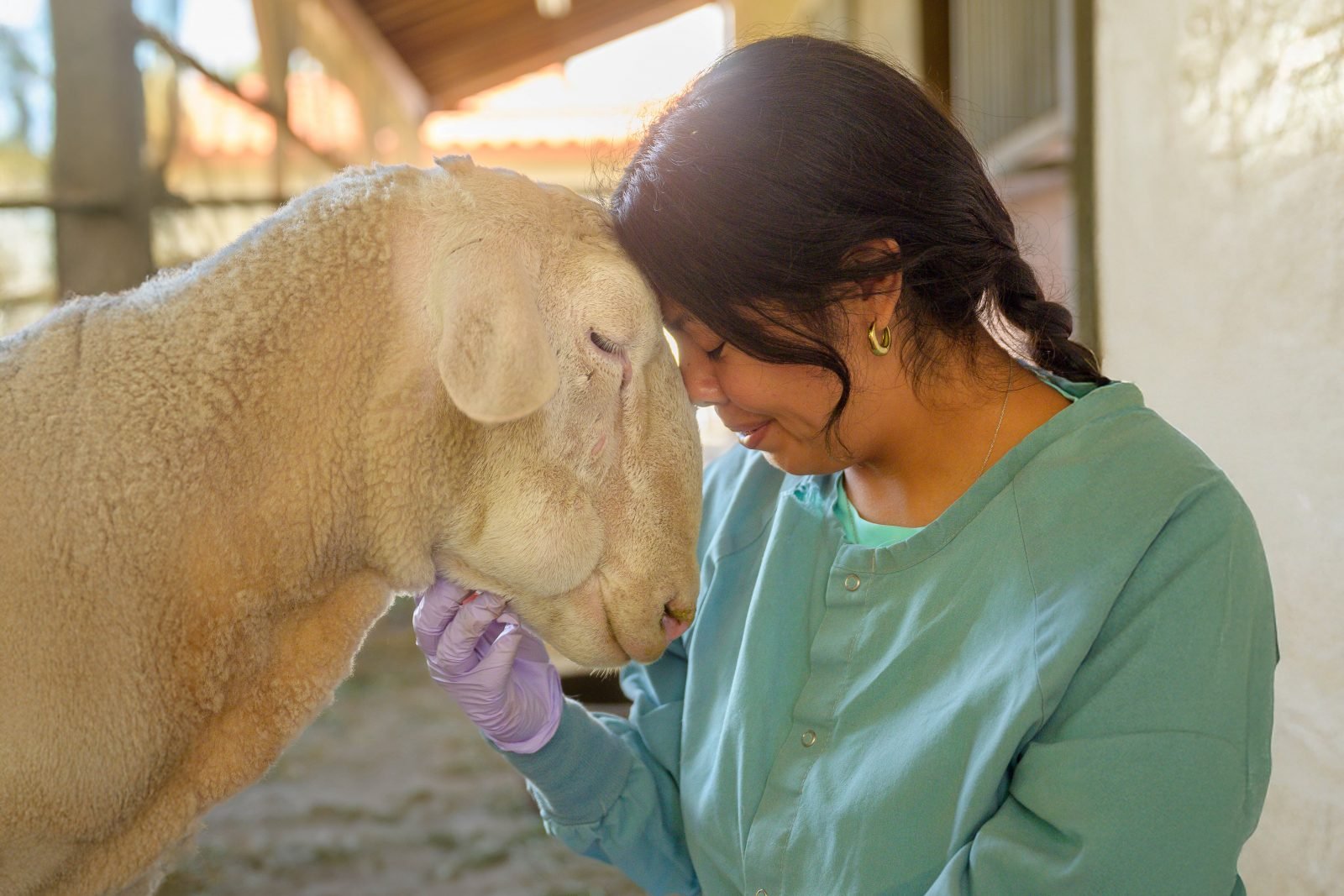As we have helped these chickens begin their recovery, we have met so many wonderful characters. It is our pleasure to introduce some to you:
Of all our new chicken friends, Zoolander is the easiest to spot in a crowd. That’s because the fall from the truck injured her neck leaving it permanently crooked. Zoolander looks a little unusual, sure, but she doesn’t give a hoot. This happy young hen explores, dust-bathes, and basks in the sunshine with the best of them — and runs, usually toward whichever caregiver has made an appearance, since she adores humans.
Jasper also stands out, as he happens to be sporting an unusual accessory. Because chickens like Jasper are bred to gain weight rapidly, they are predisposed to overeating, and many therefore develop digestive ailments. Some, like Jasper, even suffer from the disorder pica, which induces obsessive eating of non-nutritive substances (including feathers, straw, and rocks). When a chicken eats too much, or the wrong things, he can stretch out his crop, damaging this crucial digestive organ. Jasper’s crop was in rough shape, so we fitted him with a special bra (or is it a “bro”?) for support. It may look a little silly, but it’s a big relief for this inquisitive boy. We don’t want any digestive issues to keep Jasper from investigating his new world and the other fascinating creatures who call it home!
And then there’s Jane, who has already made an impression on many people far beyond the shelter, thanks to a video National Shelter Director Susie Coston posted on Facebook. In the short clip, we see the moment that this sick and exhausted baby finally feels safe enough to fall asleep; she’s so tired she can’t even keep her beak tucked under her wing. Her palpable relief has struck a chord with viewers, providing, as it does, a poignant illustration of the fundamental needs and feelings we share with our fellow creatures — Who could fail to empathize as Jane gratefully sinks into peace and rest.










